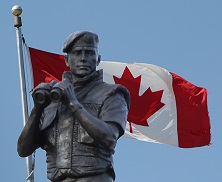True and Fascinating Canadian History
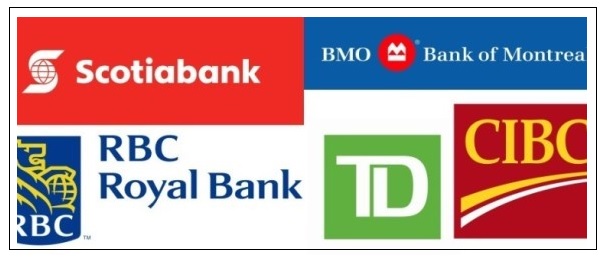
A Mystery of the Mounties:
Trust Is Not Solely A Bank's Business
by J. J. Healy
Around the world, there was a time when trust was in short supply. And for good reason. In Canada, say from the early to the mid 1940’s, life was saturated with despair, and there was little trust in governments that WWII would ever end. A loss of trust had ignited the war, trust alone would end it.
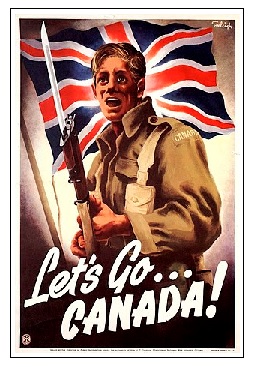
The war ended in 1945, and finally there was peace, but there was also no shortage of blame to go around. After the war, despair began to dry up, the world began to trust itself, economies sputtered then ignited and hope meant that life could continue with some normalcy. Vets came home, and families grew.
The 1950’s were a defining time in Canada; it was a period of economic growth; wages nudged upward, employment grew, and consumer confidence was measurable. In the meantime, Canadian banks were hardly idle spectators, they rarely are. Banks only profit if consumers share confidence, and at this particular time in history, it was the banks that made it increasingly possible for consumers to borrow money, and to purchase new homes, new home appliances, and new automobiles.
Very early on, banks had clenched the idea of trust as a building block upon which customers could climb to a better lifestyle, the strategy led to a solid financial success. Interestingly, the banks grasp on trusting relationships has remained unchanged even until today. But, that’s not the whole story -- in addition to building trust among consumers, a central banking system directly under the glare of Ottawa regulators played an equally important motive in making banks successful with the majority of Canadians.

From early on, the defining feature of Canadian banks was a centralized financial system, and banks exploited it to their wholesome advantage. Centrality meant that financial legislation and regulations could be passed quickly and efficiently - it resulted in an immediate and noticeable upsurge in business and increased trust for banks all across Canada -- banks could quickly adapt and quickly respond -- loans were made possible, purchases could be made, and investments could accrue interest. It’s what the banks wanted, it’s what Canadians wanted.
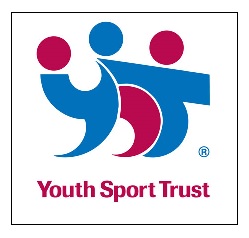
Author Charles Freedman highlighted this unique trust relationship, he said, “Advances in wealth management would not have been possible if trust did not exist between individuals as well as in financial institutions.” In Canada, trust in banks is a way of life. Today, trust continues as the bank’s primary business.
But, banks do not have exclusivity on trust. No union in the world could exist or continue without trust; all sports and games, governments, the professions, Canada’s legal system, business, schools and universities all function most effectively when players, participants, and employees which also includes police officers -- all must trust one another. Systems around the world of all kinds, including friendships, would collapse if people did not trust one another.
In the field of law enforcement, a police officer’s life often depends on the trust they share with one another. Police organizations, like banks, must also maintain a high level of trust in order to survive -- the ups and downs of trust in policing are all explained here in the short story titled, “The Mystery of the Mounties: Trust Is Not Solely A Bank’s Business.” There may be a lesson here for all police officers too.
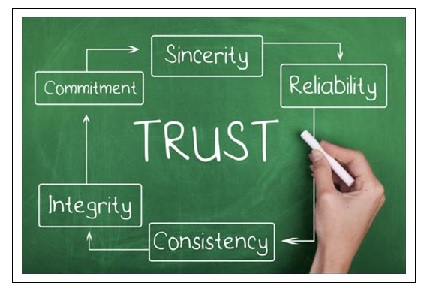
Trust is simply defined as complete reliance on the integrity of another person or thing, or having faith in someone. One could argue about the different levels of trust; for instance, one can trust children to take the garbage out every day, full knowing and expecting that children easily forget or prioritize house chores differently than adults until they reach the approximate age of 40, whereas mature married couples trust each other on a higher plane then children. Spouses trust each other with a spiritual sense attached to it.
And, at the work site, managers and supervisors trust employees to carry out their duties in a highly ethical and very honest way. Banks must have complete trust in their employees, and trust them not to steal otherwise financial systems would collapse. Once, while speaking in court at the sentencing phase in a trial, Justice Randall Wong of the B. C. Supreme Court was quoted in the Financial Post, he said: “This higher standard creates a higher responsibility on banks to get it right when levelling cause. Because a finding of cause in the banking industry, more than in any other sector, is truly a career ender.” Anecdotal evidence indicates that if a dishonest bank employee is caught stealing they immediately loose the confidence of their employer and their employment ceases immediately. The same sanctions happen in the RCMP where a high degree of trust is necessary.
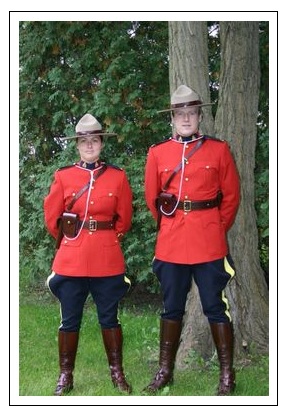
It is obvious that police officers must cherish and promote a high level of trust to maintain a positive relationship with the community, and so it should not be too surprising that the RCMP lists trust as its highest organizational core value followed by; honesty, professionalism, compassion, respect, and accountability. Most interestingly as well, are the written comments included in Canada's Public Safety Minister Ralph Goodale’s Mandate Letter (2018) to recently promoted Commissioner Brenda Lucki in which Mr. Goodale highlighted the importance of trust which Canadians place on the RCMP.
In his letter, Minister Goodale wrote, “In leading one of Canada’s oldest and most prestigious institutions, your role will be to reinforce the very best of the RCMP and to support the organization through a period of transformation to modernize and reform the RCMP’s culture. … Ultimately, these actions will bolster the efficacy, the credibility and the trust upon which the RCMP’s authority depends.” Essentially, the Minister reminded Commissioner Lucki that Canadians have an huge investment in the RCMP -- money in the bank, so to speak.
On the flip side, what is equally surprising is how seldom trust is mentioned among the top qualities of an effective leader. In a study published by Tegan Jones in 2017, as one example, the top 10 leadership qualities were revealed by the world's most successful leaders, this is her list; 1. Stay Positive, Even in the Worst Situations, 2) Exhibit Confidence Everywhere, 3) Have a Sense of Humour, 4) Embrace Failures and Manage Set Backs, 5) Listen, and Give Feedback, 6) Know How and When to Delegate, 7) Inspire and Grow People Around, 8) Take Responsibility and Never Blame Others, 9) Make Decisions Based on Lessons Learned in the Past, and 10) Lead by Example and Commit to Do the Best.
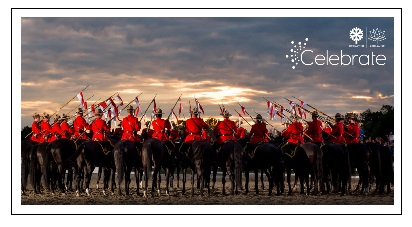
Tegan Jones summed up her list of leadership qualities by offering readers this advise, she told leaders to, “Practice Consistently, Anyone Can Be a Great Leader.” In her study, Jones surprisingly did not mention the importance of the trust quotient in the context of a leader’s personal or professional relationships.
Trust was also absent in another study by author Peter Economy. He identified his top 5 Essential Qualities of a Great Leader as the following; Clarity, decisiveness, courage, passion, and humility. Once again, one would think that if trust was such an important and integral personal value in the leadership mix, that it would be offered up as a higher trait among all other leadership qualities. However, as previously noted, trust does not seem to meet the leadership threshold in academic study after study.
One reason for trust not to be mentioned in studies might hinge on the fact that people think that trust is simply inherent and they just assumed it as an integral trait whenever someone is identified as a leader, and because trust seems so obvious it does not get sufficient mention. That aside, trust does play an integral part in all relationships in policing, but it is always discouraging and disappointing when trust is broken as a police officer.
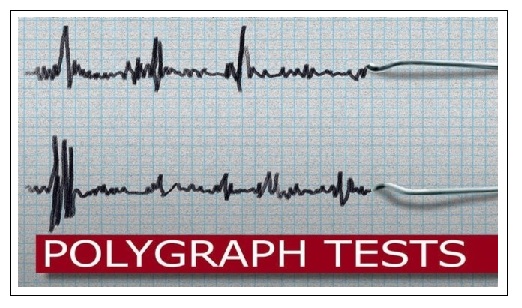
Other anecdotal evidence indicated that some applicants who apply for the RCMP never stop to think that trust would be a huge factor in a successful application for policing. It is unthinkable, that while undergoing the polygraph, applicants have been known to admit to all sorts of crimes, and they never thought that criminal acts might be an impediment for a job in policing, offences apparently have included; theft, sexual assaults, use of porn, and the list goes on and on. Applicants who failed the selection process had given little priority to the importance of trust as a personal trait and a highly sought after leadership quality in the RCMP.
One can attest that 99% of all police officers are trustworthy. It is to the RCMP’s credit that transgressions against the law involving police officers are not too common, but over the years, a few cases have been known to happen. An RCMP constable was once charged for breach of trust after the member unlawfully released information to a third party which he had gained through access of a police computer network. He was dismissed.

In another disturbing case, an RCMP member was charged for sexual assault. The complainant alleged that the constable offered to drive her home after her car was disabled, and along the way she said the constable assaulted her. Later, the woman’s lawyer said, “If you can’t trust a peace officer in circumstances like this, this is a significant breach of trust.” One can speculate that he too was dismissed.
In another case out west, an RCMP constable was charged for stealing a small amount of money, less than $100.00 but the amount doesn’t matter. He was charged in criminal court. An RCMP spokesperson later told the media, “Police officers are in a position of trust, so a breach of trust is taken very seriously.”
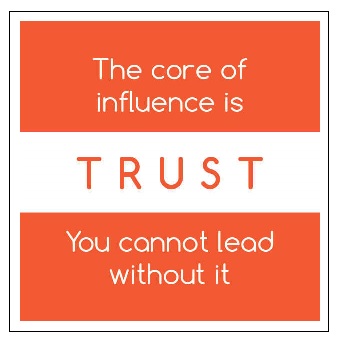
Trust is not solely a bank’s business. Sure, trust is important for banks as it is a demonstrative quality which gives clients confidence to invest. But, all organizations make trust a main ingredient in their recipe for success. According to the judiciary who often speak about issues related to law enforcement, police officers are held to a higher level of accountability which makes policing somewhat unique among many other organizations -- banks set a higher level of trust expectancy for their employees, and policing does precisely the same.
The RCMP always needs people who work hard, honestly, and who can also be fully trusted in whatever situation they might face. It is always disappointing and equally a mystery when any police officer finds themselves on the wrong side of the law and betrays the trust which they have been given.
That’s the lesson and a gentle reminder for all police officers.
The end.
Reporting from the Fort,
J. J. Healy
May 11, 2018
Commissioner's Mandate Letter. By The Honourable Ralph Goodale, P.C., M.P.
Minister of Public Safety and Emergency Preparedness. May 7, 2018.
Economy, Peter. The 5 Essential Qualities of a Great Leader. Inc.com. March 25, 2016
https://www.inc.com/peter-economy/the-5-essential-qualities-of-a-great-leader.html
Freedman, Charles. The Canadian Banking System. March. 1998.
https://www.banqueducanada.ca/wp-content/uploads/2010/01/tr81.pdf
Jones, Tegan. 10 Leadership Qualities Revealed by the World's Most Successful Leaders.
Lifehack & Motivation. November 14, 2017.
https://www.lifehack.org/articles/communication/10-impressive-characteristics-great-leaders-have.html
Levitt, Howard. Financial Post. March 31, 2014.

